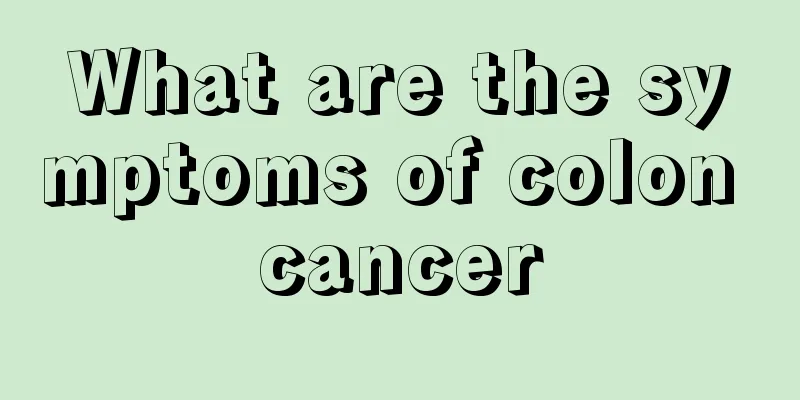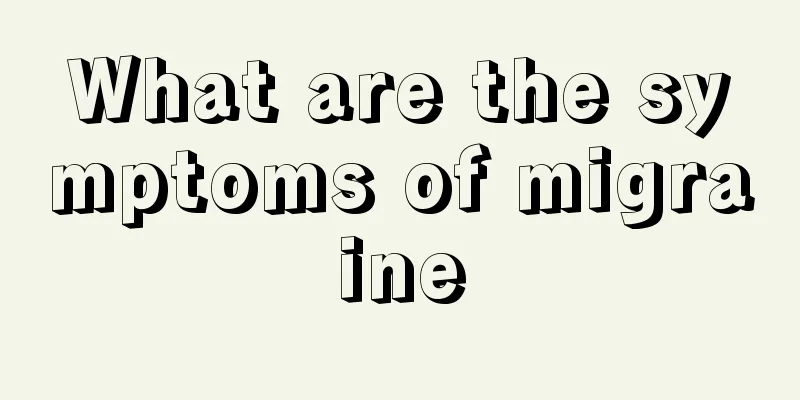What are the symptoms of colon cancer

|
Common symptoms of colon cancer include: 1. Blood in the stool Blood in the stool means bleeding or blood in the stool. If the bleeding is caused by the lesion in the colon close to the anus, sometimes the stool with a jam color or bright red color can be seen with the naked eye. This is overt bleeding. If the bleeding is caused by an intestinal tumor far from the anus, sometimes a laboratory test (i.e. fecal occult blood test) is needed to find out whether there is hidden bleeding in the stool. The patients themselves may not pay much attention to the overt bleeding found by the naked eye and it is very easy to ignore it, especially for patients with existing "hemorrhoids". Most of them are mistaken for hemorrhoid attacks. A domestic hospital once conducted a survey on 312 patients with colon cancer who initially had bleeding as their first symptom. The shortest interval between patients going to the hospital for treatment was 5 months, and the longest interval was 42 months. This lesson was extremely painful. 2. Anemia: Hidden bleeding is sometimes difficult to detect. Due to chronic blood loss, the initial symptoms are characterized by unexplained anemia, which usually does not attract the attention of doctors and patients. It is not until the anemia becomes severe or abdominal mass appears that colon cancer is considered and examination is carried out, but it is too late. 3. Mucus stools Some intestinal tumors can secrete a large amount of mucus, and as the tumor grows, the amount of mucus secretion continues to increase and the frequency of bowel movements increases. 4. Deformed or thinned stools. For tumors located on the side of the anus, as the tumor grows, the stools may gradually become deformed and thinner, the frequency of bowel movements may increase, and there may be a feeling of incomplete bowel movements. As the disease progresses, the tumor may block the intestinal tract and cause obstruction, resulting in difficulty in defecation. 5. When an inappropriate abdominal tumor grows to a considerable size or infiltrates the wall of the intestinal tract, causing intestinal stenosis, the passage of feces in the intestine is blocked. At this time, symptoms such as increased bowel sounds, abdominal distension, abdominal pain, and constipation may occur. Once the above symptoms occur, you should go to the hospital immediately. |
<<: What lifestyles are closely related to the occurrence of colon cancer
>>: How does diet affect the risk of prostate cancer?
Recommend
Liver cancer pain treatment
Generally, severe pain symptoms will occur in the...
Can people with fibroids exercise normally?
Can people with fibroids exercise normally? Exerc...
What is a teratoma?
Teratoma is an ovarian germ cell tumor, which may...
Why does my left eyelid keep twitching?
If we are encountering something difficult or ann...
Autonomic nervous system disorder, it is very important to find the right treatment method
Autonomic nervous system disorder is a very commo...
Suddenly I felt a sharp pain in the middle of my chest and felt like I was choking on something. What's going on?
Pain in the center of the chest is a common sympt...
What causes stomach hunger pain
In daily life, we often feel hungry and painful i...
Swelling and pain after knee injury
Swelling and pain after knee injury and difficult...
Can Hepatitis C be cured?
Hepatitis C is a common type of hepatitis. There ...
How to judge the quality of follicles?
Under normal circumstances, the size of a woman&#...
There is white mucus and blood in the stool
Everyone needs to have normal bowel movements eve...
Is it serious if the urine test shows more than 200 bacteria?
Modern people's lifestyles are generally irre...
Having this disease actually means you will live longer
As time goes by, the aging body becomes less obed...
What can I wear to lift my buttocks?
I believe everyone is particularly interested in ...
How long can a patient with advanced lung cancer and low white blood cell count live?
How long can a patient with advanced lung cancer ...









